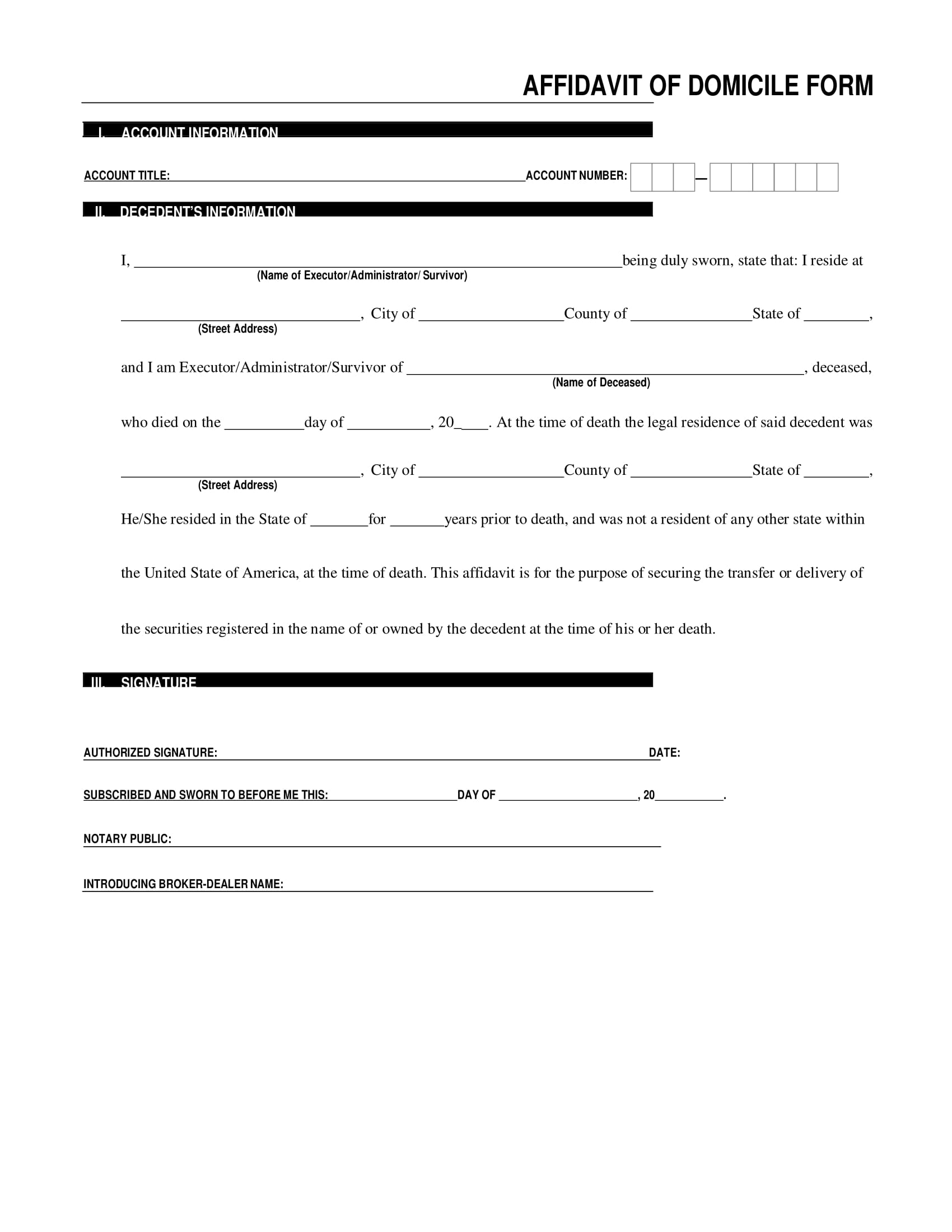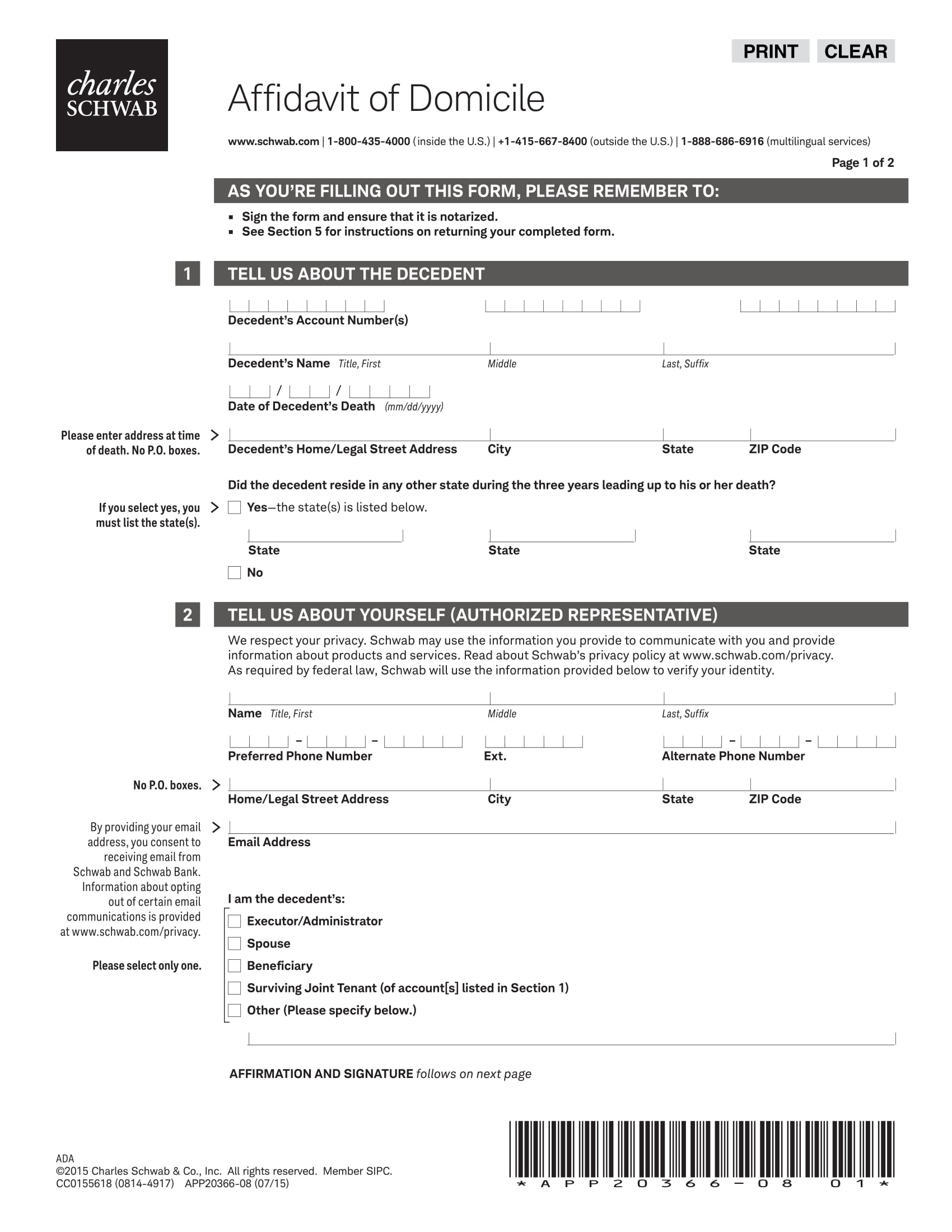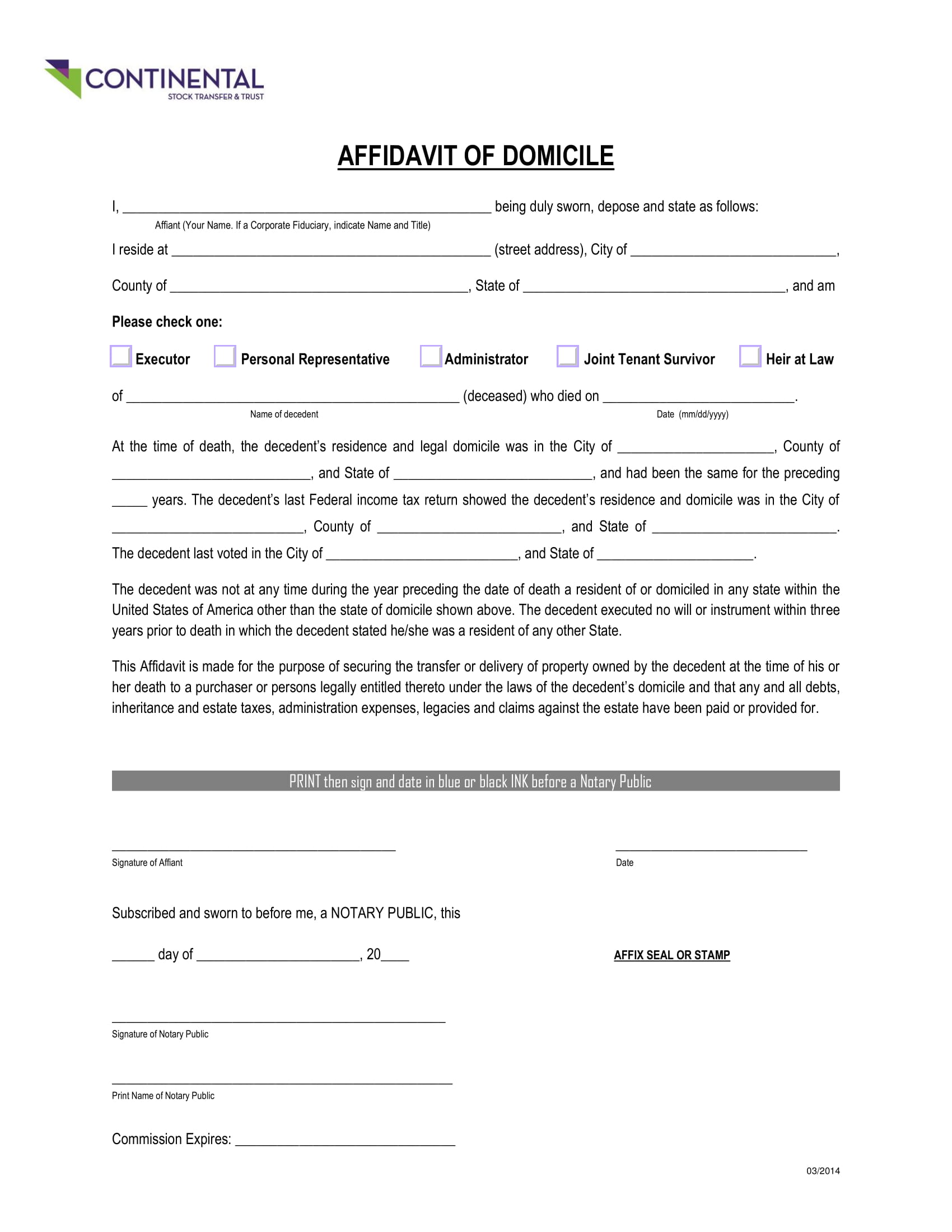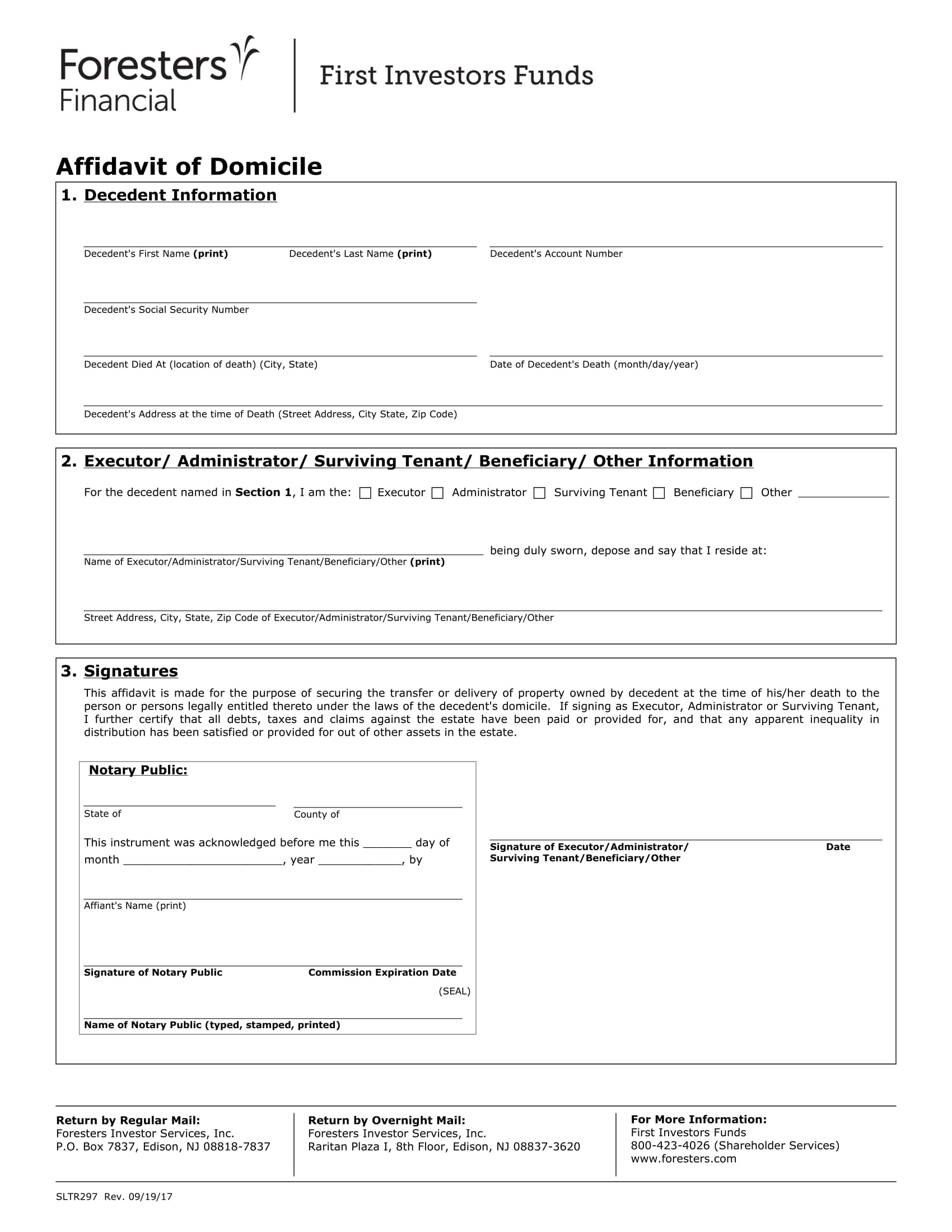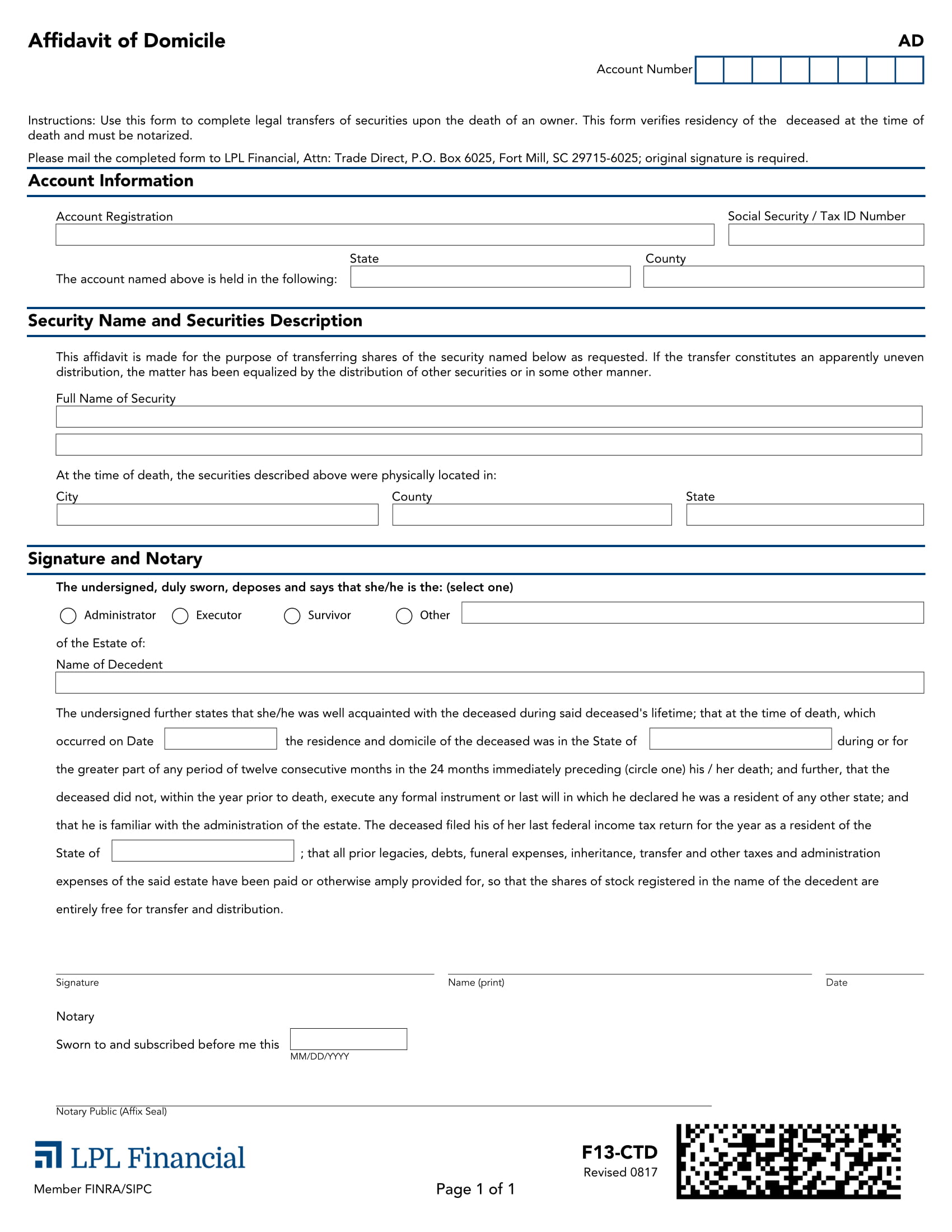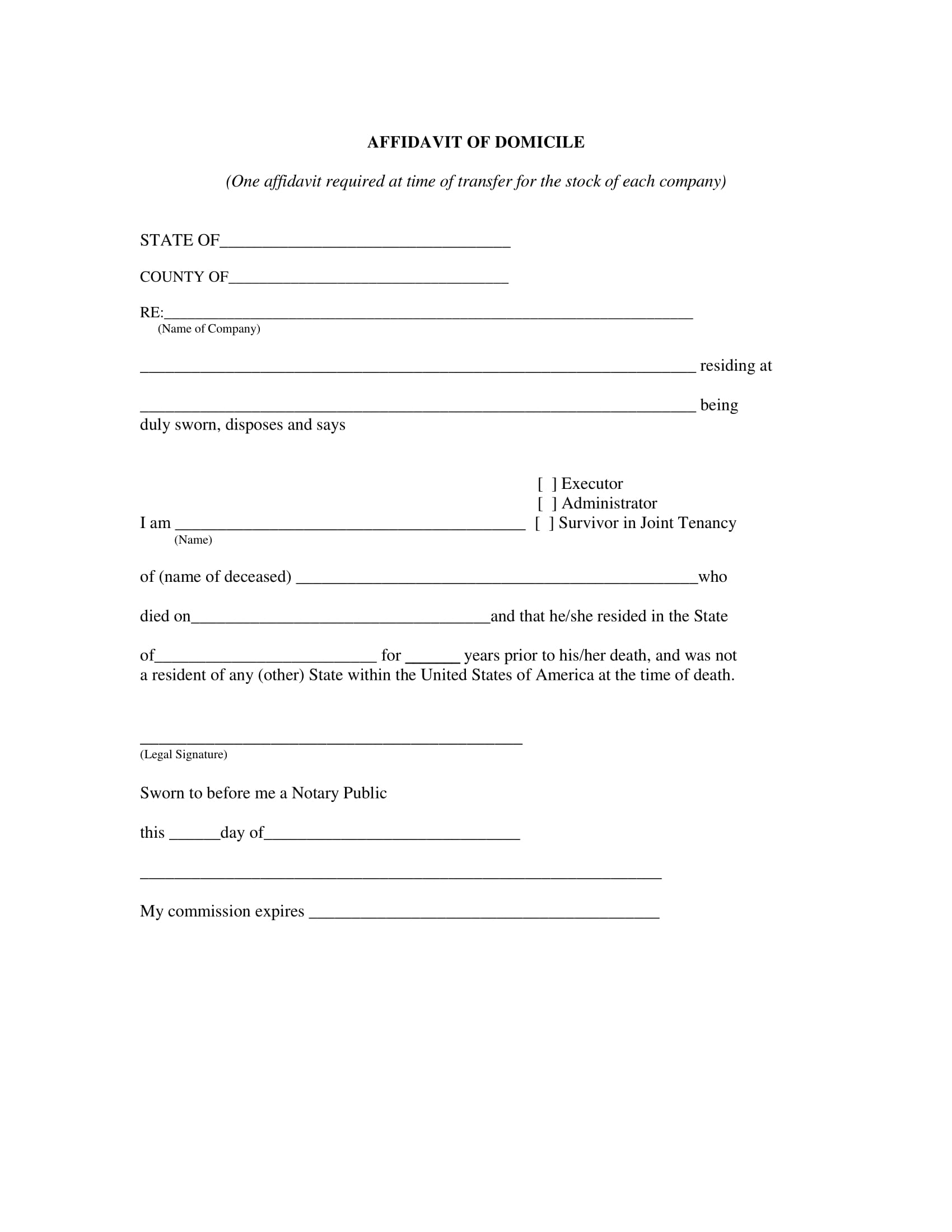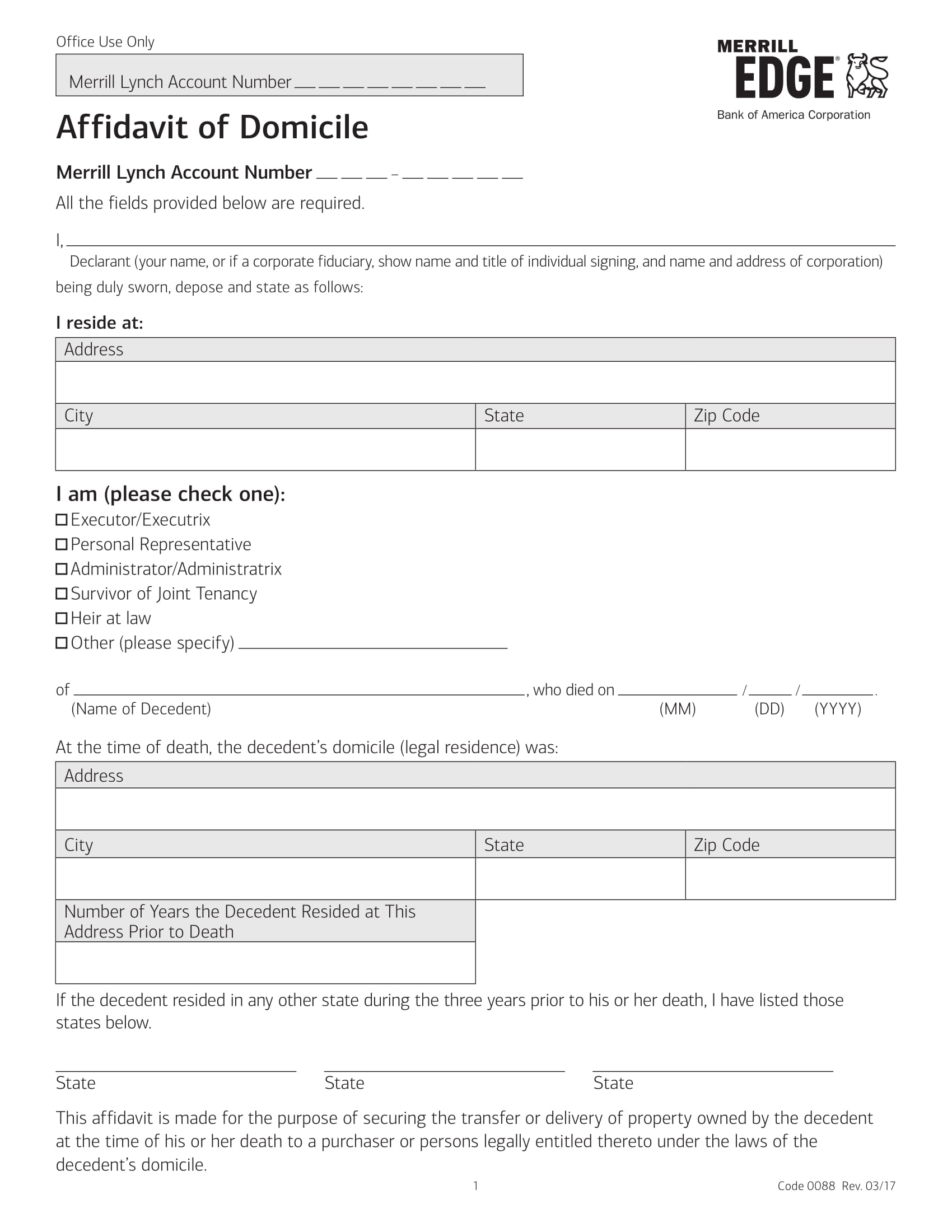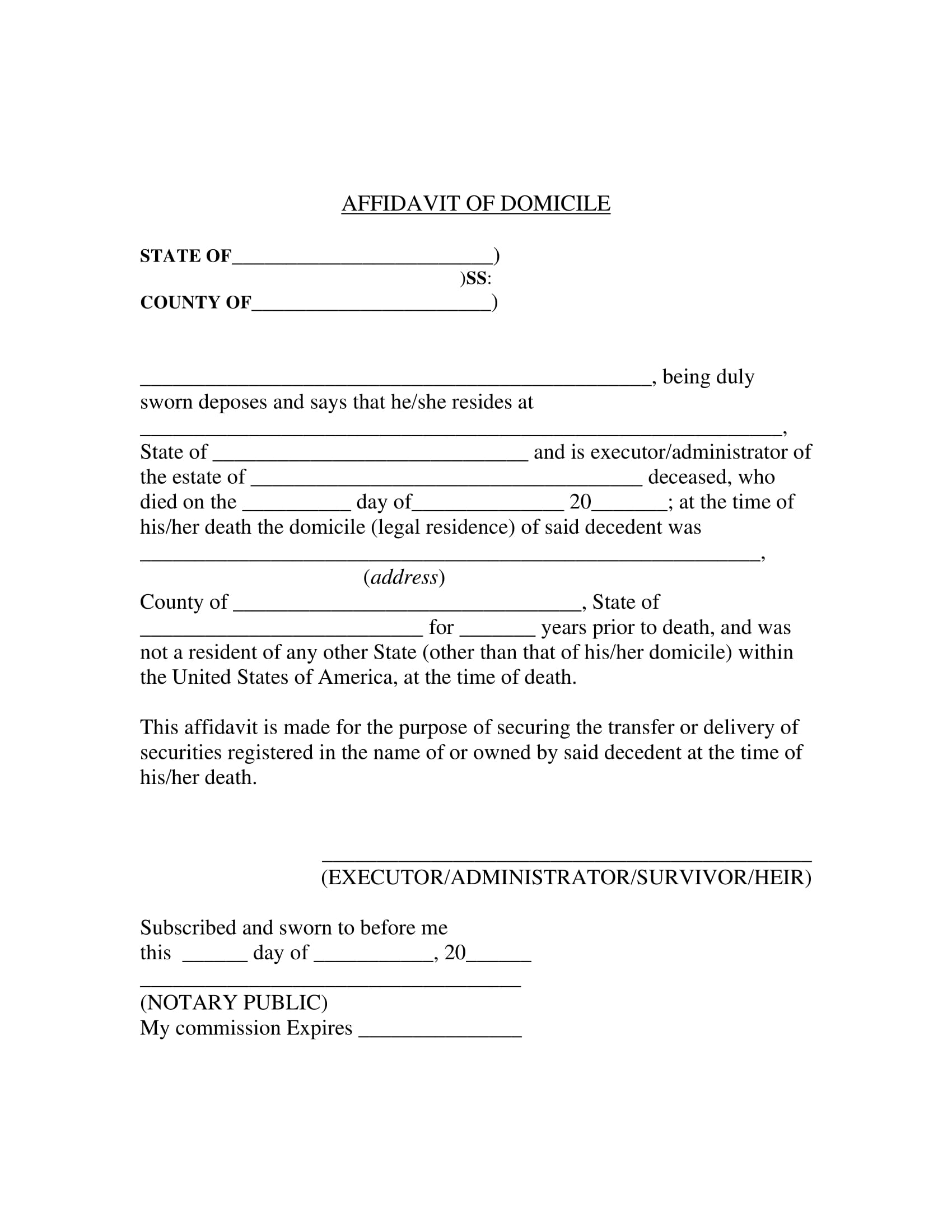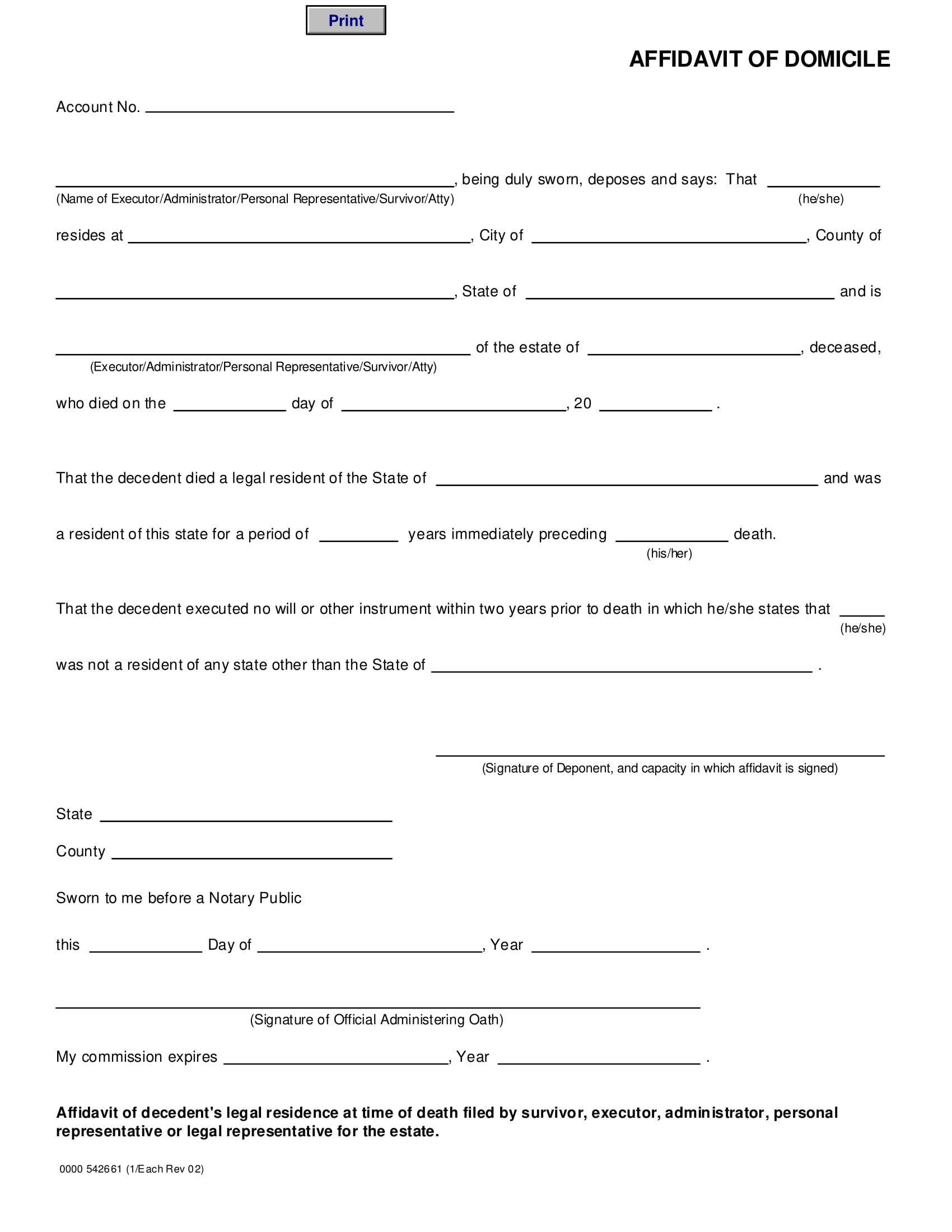9+ Affidavit of Domicile Examples to Download
Where do you live? This is a very simple question that even a child in kindergarten could easily answer. However, as we grow older, we might experience not living in our own house—rented a space, for example, or living in an apartment. You may also see affidavit of ownership examples.
We might be living in another country far from the place where we were born and raised for we have to run some errands. And then when we were asked, “Where are you residing?” we might be thinking that the person asking might be referring to either our domicile or residence? What then is the difference or the differences between the two? Simply put, the key difference is on the intent to remain in the place. You may also like affidavit form examples.
Residence is more temporary in nature and refers to the present physical location of a person’s home. On the other hand, a domicile is the place where a person has a fixed dwelling—where he registers to vote, obtains a driver’s licence, registers his car, and many others—with the intention of making the place his permanent home. A lot of legal documents would require the domicile of the person; among these is the affidavit of domicile.
The next section provides the examples and templates of affidavit of domicile.
Ameritrade Affidavit of Domicile Example
Basic Affidavit of Domicile Example
Clear Affidavit of Domicile Example
What Is an Affidavit of Domicile?
This is a notarized document issued by a governing court verifying the resident of a deceased person at the time of death and is required to transfer ownership of property out of the deceased individual’s name. It is a written equivalent of testifying in court in which the affiant is placed under oath to tell the truth by his signature stating that all the facts in the affidavit are true and correct. You may also see sworn affidavit form examples.
A domicile is a person’s permanent home, the place where he lives, registers to vote, obtains a driver’s licence, registers his car, among others. It is not the same as residency, for a person can have two residences in separate states, although a person with one home has the same domicile and residence. You may also like blank affidavit form examples.
When Is an Affidavit of Domicile Needed?
An affidavit of domicile is needed when a legal proof of the deceased person’s residence is needed. This usually occurs when the executor needs to transfer certain assets that the person left behind.
The assets are typically stocks or securities. Commonly, the broker who processed the stocks may require this affidavit to verify where the person lived, and once the affidavit is provided, the assets can now be transferred according to the will of the deceased or the court’s instructions. You may also check out affidavit of residence form examples.
The affidavit is mandatorily used in the transfer of securities in an estate. In the event when a person dies, the court will appoint a personal representative. If the decedent, the dead person, owned stocks, the personal representative must transfer them to an estate account, which requires an affidavit of domicile before it can transferred. You might be interested in affidavit of death examples.
Another use of this document is in the determination of domicile for tuition purposes in a state-supported university. There are states, like in Florida, in which a student files a declaration of domicile with the clerk of court in the place where he or she is establishing his or her permanent domicile. You may also see affidavit of heirship form examples.
Continental Affidavit of Domicile Example
Foresters Financial Affidavit of Domicile Example
How to Fill Out an Affidavit of Domicile
As stated above, an affidavit of domicile is important to determine the domicile of a certain person who died in order to transfer his or her assets to an estate account. Completing an affidavit of domicile requires only a few steps. They are as follows:
1. Obtain a general Affidavit of Domicile form. An attorney is likely to provide this form especially in an estate settlement process. However, there are also a lot of forms or templates, just like the examples presented above, that you can find on the Internet. They provide you copies of the form or you can create your own and use those templates as a reference.
2. Fill in the state and county of the decedent’s residency at the time of death.
3. On the line before the words “being duly sworn,” legibly write, or much better type, your name and provide your physical address, indicating that you are making a sworn statement as to the facts that follow. This is also a way to identify you as the executor or administrator of the estate. You may also see affidavit of correction examples.
4. State the name of the deceased and provide the day, month, and year of the decedent’s death.
5. Fill in the decedent’s street address, city, county, and state at the time of death. This also requires you to list the number of years at which the decedent lived at the address and was not a resident of another state. You may also like affidavit of support form examples.
6. Sign the form as the executor or administrator in the presence of a notary public.
7. Obtain the signature of the notary public, with the the day, month, and year that the signing occurred.
Formal Affidavit of Domicile Example
Minimalist Affidavit of Domicile Example
Contents
The usual content of an affidavit of domicile are the following:
- the name of the affiant
- the words “being duly sworn”
- the address of the affiant
- the name of the decent
- the date of death of the decedent
- the facts necessary to prove domicile
- the statement by the affiant that the deceased had no other domicile
- the statement by the affiant that the deceased did not execute a will indicating a different domicile.
The above are just the usual contents of an affidavit of domicile, but there are other items and information that may be included in the affidavit if it can be useful for the document. You may also see affidavit of consent examples.
Executing Your Affidavit of Domicile
After the affidavit of domicile form has been filled out, the affiant must sign and write the date in the presence of a notary public, who will also sign in acknowledgment at the bottom page of the document.
Even if not all jurisdictions require a notary to sign the affidavit of domicile, it is highly recommended that a notary will be used in case there will be disputes as to the validity of the document; hence, it is better to have a notary public signing the document. You may also like gift affidavit examples.
Consequences
Because an affidavit of domicile is a serious, formal, and legal document, it should not be taken and executed lightly. It bears consequences, for example, in determining domicile for taxation purposes and for reduced educational expenses. You may also check out bill of lading form examples.
The affiant, the one who swears to an affidavit, is under oath and sworn to tell the truth; hence, he or she should make the necessary determination of facts before execution so that he or she will commit no errors or mistakes with regard to the information that he or she will be presenting. You might be interested in affidavit of financial support examples.
If ever you happen to be the affiant, if you are providing sworn testimony, you must be careful with your words for you can be charged with a crime for providing a false statement on an affidavit of domicile.
Official Affidavit of Domicile Example
Simple Affidavit of Domicile Example
Standard Affidavit of Domicile Example
Sum Up
A resident and a domicile is different in a way that the scope of the domicile includes that of a residence. Furthermore, domicile is more permanent in nature than residence. This is where the person registers to vote, obtain a driver’s licence, registers his car, among others. The determination of a person’s domicile is important as this is usually required in many legal documents including the affidavit of domicile. You may also see affidavit of service form examples.
An affidavit of domicile is a legal, notarized document that is required in transferring ownership of property of a decedent to an estate account.
It contains the name and address of the affiant, the words “being duly sworn,” the name and date of the decent, the facts necessary to prove domicile, the general statement by the affiant that the deceased had no other domicile and that the deceased did not execute a will indicating a different domicile, and other important information necessary to have a complete information of the affidavit.
Because an affidavit is a legal document, it must be taken with caution as it can be used against you if you are providing a false statement on the affidavit.
Lastly, you may ask your attorney for a blank form of an affidavit of domicile or you can refer to the previous section for some affidavit of domicile examples and templates.




